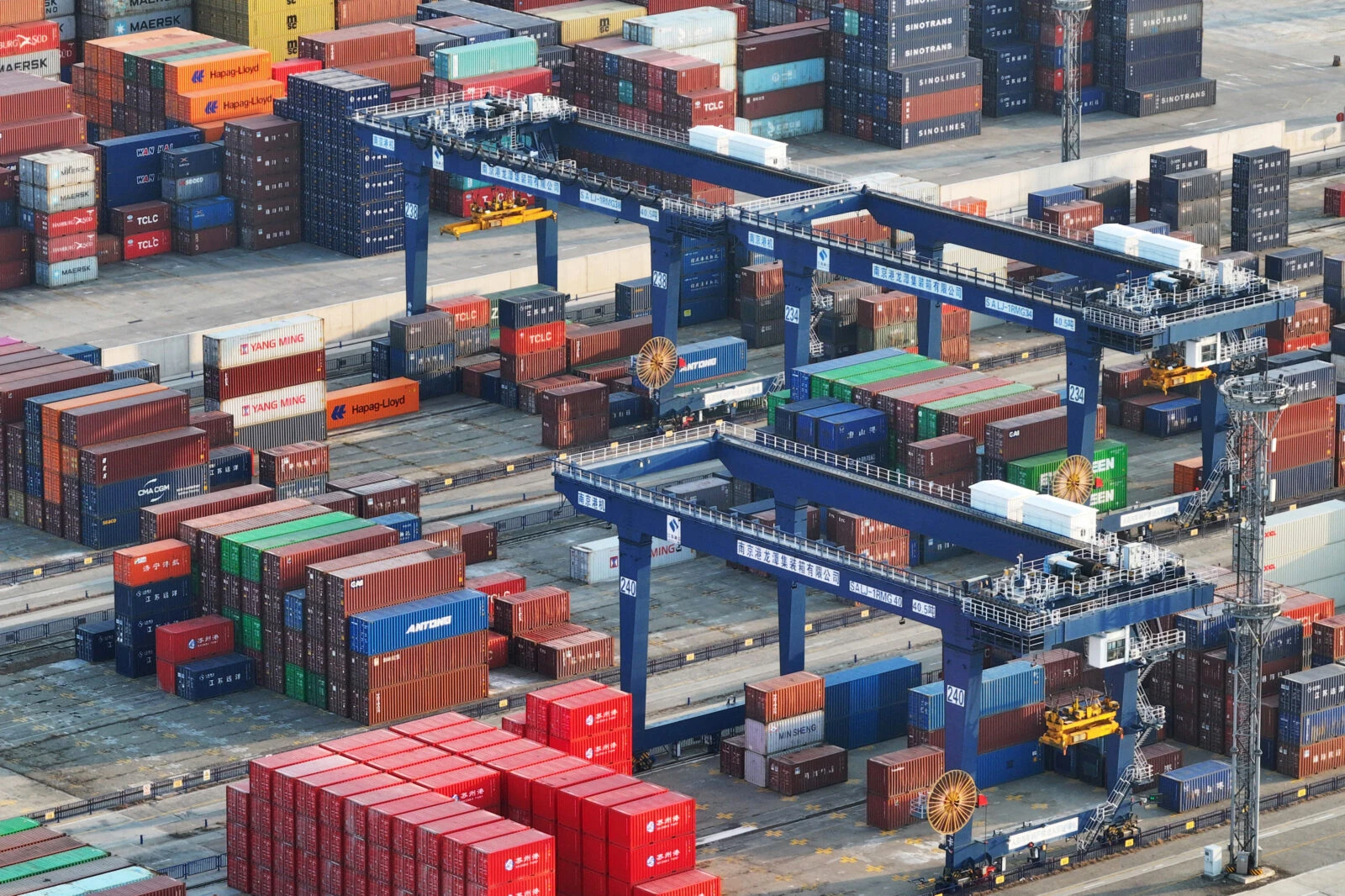China targets US energy imports in latest trade war countermove
 This combination of pictures created on February 04, 2025 shows, L-R, US President Donald Trump in the Oval Office of the White House on February 3, 2025, in Washington, DC and China's President Xi Jinping speaking in Macau on December 19, 2024. (AFP Photo)
This combination of pictures created on February 04, 2025 shows, L-R, US President Donald Trump in the Oval Office of the White House on February 3, 2025, in Washington, DC and China's President Xi Jinping speaking in Macau on December 19, 2024. (AFP Photo)
China launched measured countermeasures against new U.S. tariffs Tuesday, targeting American energy exports and restricting vital metal shipments in a calculated response that suggests Beijing remains open to negotiations despite escalating trade tensions.
The Chinese government imposed tariffs on approximately $20 billion worth of U.S. imports, including a 15% duty on coal and liquefied natural gas, while slapping 10% tariffs on crude oil, agricultural machinery, and various vehicles. The move affects roughly 12% of total American exports to China, according to Capital Economics.
“The measures are fairly modest, at least relative to U.S. moves,” said Julian Evans-Pritchard of Capital Economics. “They have clearly been calibrated to try to send a message to the U.S. without inflicting too much damage.”

The response follows U.S. President Trump’s implementation of 10% tariffs on Chinese goods this week, affecting approximately $450 billion worth of imports. The U.S. measures also eliminated duty-free exemptions for low-value packages, potentially impacting Chinese online retailers.
In a strategic move that could affect critical supply chains, Beijing also announced export controls on rare metals and chemicals including tungsten, tellurium, bismuth, indium, and molybdenum—materials essential for industries ranging from mining to electronics manufacturing. China currently dominates global supply chains for these rare metals.
“Given the current economic downturn, China cannot afford—and does not want—to impose excessive trade barriers,” Agatha Kratz at the Rhodium Group told Agence-France Presse (AFP), suggesting Beijing’s restraint may be influenced by domestic economic considerations.
Economic constraints shape China’s strategy against US
The timing of China’s announcement coincides with heightened diplomatic activity between the two nations. While President Trump initially suggested a call with Chinese President Xi Jinping might be imminent, he later told reporters at the White House he was in “no rush” to speak with his Chinese counterpart.
The measured response from Beijing comes as other nations have successfully negotiated temporary reprieves from U.S. tariffs. Both Mexico and Canada secured 30-day stays on threatened 25% tariffs after agreeing to enhance measures against fentanyl trafficking and illegal migration.
The U.S. Postal Service has suspended inbound package shipments from China and Hong Kong “until further notice,” though letters and flat mail items remain unaffected.
China’s commerce ministry announced it would file a complaint with the World Trade Organization over what it termed “malicious” U.S. levies, while simultaneously launching probes into U.S. tech giant Google and the fashion group that owns Tommy Hilfiger and Calvin Klein.
The impact on energy trade could be significant, as Chinese customs data shows U.S. imports of oil, coal, and LNG totaled more than $7 billion last year. However, China has diversified its energy sources, importing $94 billion worth of energy products from Russia in the same period.



